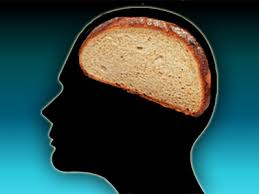 It was back in the sixties and seventies that so many folks embraced the mantra: “You are what you eat.” So, what we eat influences how much weight we gain or not, what we eat influences how much of the important vitamins or minerals we are processing, and more. What we haven’t heard nearly as much about, however, is how what is already in our gastro-intestinal tract affects our brain and how we feel, sense, think and act.
It was back in the sixties and seventies that so many folks embraced the mantra: “You are what you eat.” So, what we eat influences how much weight we gain or not, what we eat influences how much of the important vitamins or minerals we are processing, and more. What we haven’t heard nearly as much about, however, is how what is already in our gastro-intestinal tract affects our brain and how we feel, sense, think and act.
And this connection between the brain and all that is in our gut is hard-wired through a nerve called the vagus nerve. Scientists are finding some examples of the microbiomes of our gut affecting how we feel, and they, of course, also are finding that signals from our brain to our stomachs also affect our physical and mental health. Evidence is gathering that suggest the presence of certain microbes in our digestive system can affect mental disorders like depression or anxiety. They call these beneficial microbes psychobiotics, and they’re the anchor to what is termed the “microbiota gut-brain axis.”
It’s still largely animal studies, and most animals have different digestive microbes than humans, yet there are important parallels across many mammals. In experiments that raise mice in sterile environments, scientists have introduced “good bacteria,” and the mice subsequently have reduced stress, less depression or lower anxiety. In human experiments, researchers have found that ALS patients have lower levels of vitamin B3, so these researchers are devising plans to introduce supplemental B3 to gauge any beneficial effect. There is reason to be optimistic based on other early studies that have found adding probiotics like bifidobacterial and lactobacilli may be behind a reduction of stress. Other studies are finding quantitative associations between other bacteria and depression. As with most human traits there is a wide range in the kind and amount of bacteria in people’s gastrointestinal tracts. In controlled experiments, however, scientists have found that increasing whole grains, some fermented foods and lots of fiber created a stomach flora that was associated with reduced stress. Both control and experimental groups had similar GI microbes but the different foods gave off more beneficial chemicals. In another study prebiotics enhanced the problem-solving capabilities of patients with psychoses.
The two key takeaways are very simply: (1) eliminate processed foods from your diet; and (2) increase the volume of foods with high fiber content such as colorful fruits and vegetables. And you can’t have it both ways. If you over-consume hot dogs or pizza, you cannot simply offset their negative with high fiber add-ons.
Charlotte Bishop is an Aging Life Care Advisor, Geriatric Care Manager and founder of Creative Care Management, certified professionals who are geriatric advocates, resources, counselors and friends to older adults and their families in metropolitan Chicago. She also is the co-author of How Do I Know You? A Caregiver’s Lifesaver for Dealing with Dementia.






